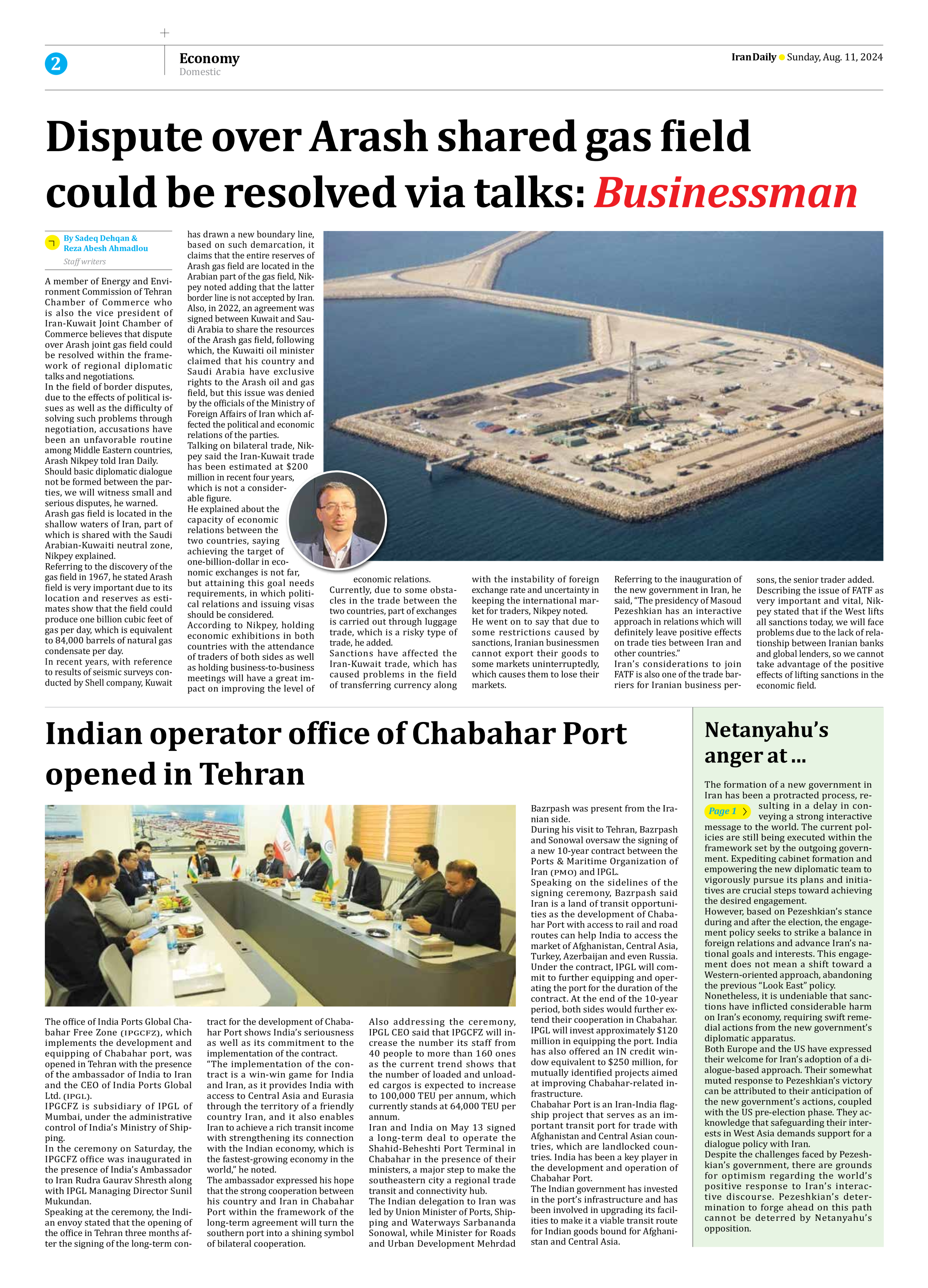
Copy in clipboard...
Dispute over Arash shared gas field could be resolved via talks: Businessman
In the field of border disputes, due to the effects of political issues as well as the difficulty of solving such problems through negotiation, accusations have been an unfavorable routine among Middle Eastern countries, Arash Nikpey told Iran Daily.
Should basic diplomatic dialogue not be formed between the parties, we will witness small and serious disputes, he warned.
Arash gas field is located in the shallow waters of Iran, part of which is shared with the Saudi Arabian-Kuwaiti neutral zone, Nikpey explained.
Referring to the discovery of the gas field in 1967, he stated Arash field is very important due to its location and reserves as estimates show that the field could produce one billion cubic feet of gas per day, which is equivalent to 84,000 barrels of natural gas condensate per day.
In recent years, with reference to results of seismic surveys conducted by Shell company, Kuwait has drawn a new boundary line, based on such demarcation, it claims that the entire reserves of Arash gas field are located in the Arabian part of the gas field, Nikpey noted adding that the latter border line is not accepted by Iran.
Also, in 2022, an agreement was signed between Kuwait and Saudi Arabia to share the resources of the Arash gas field, following which, the Kuwaiti oil minister claimed that his country and Saudi Arabia have exclusive rights to the Arash oil and gas field, but this issue was denied by the officials of the Ministry of Foreign Affairs of Iran which affected the political and economic relations of the parties.
Talking on bilateral trade, Nikpey said the Iran-Kuwait trade has been estimated at $200 million in recent four years, which is not a considerable figure.
He explained about the capacity of economic relations between the two countries, saying achieving the target of one-billion-dollar in economic exchanges is not far, but attaining this goal needs requirements, in which political relations and issuing visas should be considered.
According to Nikpey, holding economic exhibitions in both countries with the attendance of traders of both sides as well as holding business-to-business meetings will have a great impact on improving the level of economic relations.
Currently, due to some obstacles in the trade between the two countries, part of exchanges is carried out through luggage trade, which is a risky type of trade, he added.
Sanctions have affected the Iran-Kuwait trade, which has caused problems in the field of transferring currency along with the instability of foreign exchange rate and uncertainty in keeping the international market for traders, Nikpey noted.
He went on to say that due to some restrictions caused by sanctions, Iranian businessmen cannot export their goods to some markets uninterruptedly, which causes them to lose their markets.
Referring to the inauguration of the new government in Iran, he said, “The presidency of Masoud Pezeshkian has an interactive approach in relations which will definitely leave positive effects on trade ties between Iran and other countries.”
Iran’s considerations to join FATF is also one of the trade barriers for Iranian business persons, the senior trader added.
Describing the issue of FATF as very important and vital, Nikpey stated that if the West lifts all sanctions today, we will face problems due to the lack of relationship between Iranian banks and global lenders, so we cannot take advantage of the positive effects of lifting sanctions in the economic field.







